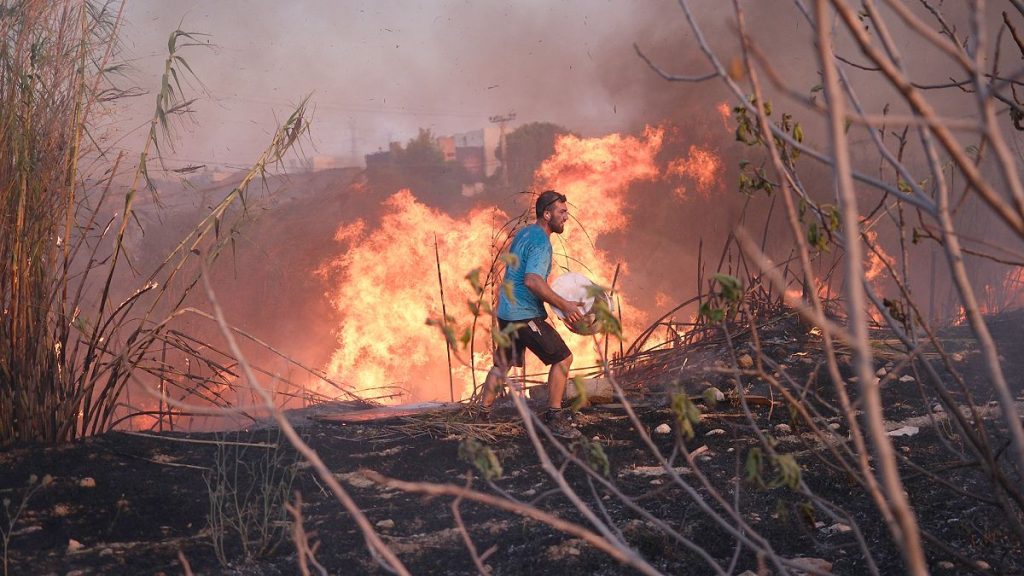The European Union Commission is providing emergency support to Greece and Albania to help them combat severe wildfires. Resources from other European countries under the EU’s Civil Protection Mechanism will be utilized to aid both nations. Greece will receive aerial and ground firefighting resources, including rescEU planes and helicopters from France, Italy, and Serbia, as well as additional firefighting teams from the Czech Republic, France, Italy, Romania, and Serbia. Albania will benefit from a multipurpose military plane from Romania capable of carrying up to 6 tonnes of water. The EU Civil Protection Mechanism, which can be requested by EU member states and certain non-EU countries, plays a significant role in disaster response in Europe.
The European Commission has announced a funding injection of €600 million into the EU Civil Protection Mechanism to enhance its aerial firefighting capacity. This funding will enable the purchase and deployment of twelve new planes to Croatia, France, Italy, Greece, Portugal, and Spain. The aim is to strengthen the rescEU firefighting capacity in order to combat increasingly intense wildfires across Europe. European Commissioner for Crisis Management Janez Lenarčič emphasized the importance of this investment in acquiring aircraft that will enhance the protection of citizens in Croatia, Greece, and throughout Europe. He also signed an agreement in Zagreb for the purchase of specialized firefighting aircraft between the Croatian government and the Canadian Commercial Corporation.
Greece has been struggling to contain a large wildfire that originated in the northeast of Athens and spread across Mount Pendeli and into the northern and northeastern suburbs of the capital. One fatality has been reported, and over a dozen individuals have been injured due to the strong winds fueling the flames. Despite the challenges faced, the fire department has managed to control the active, advancing fronts, focusing on extinguishing fires in numerous slow-burning areas. In Albania, civil emergency services are working to extinguish wildfires in and around the village of Mesopotam, leading to the evacuation of two families. The country experiences frequent wildfires during hot, dry summers, with authorities attributing the larger and more frequent blazes to the impact of climate change.
The mobilization of international and EU resources to combat wildfires in Greece and Albania reflects the collective response to environmental emergencies faced by European nations. By enhancing aerial firefighting capabilities through the EU Civil Protection Mechanism, countries are better equipped to respond to the escalating threat of wildfires. The deployment of rescEU planes, helicopters, and firefighting teams from various European countries demonstrates solidarity and cooperation in addressing natural disasters and protecting citizens across the continent. Initiatives like the purchase of specialized aircraft and the commitment of resources illustrate the EU’s commitment to strengthening disaster response mechanisms and ensuring the safety and security of populations vulnerable to wildfires and other environmental hazards.
Overall, the provision of emergency support by the EU Commission to Greece and Albania signals a proactive response to the growing threat of wildfires in Europe. With a focus on strengthening aerial firefighting capabilities through the acquisition of new planes and the coordination of resources from multiple countries, the EU is working towards enhancing the continent’s resilience to natural disasters. The ongoing wildfires in Greece and Albania highlight the urgent need for effective disaster response mechanisms and international cooperation to mitigate the impact of environmental emergencies. Through the EU Civil Protection Mechanism and strategic investments in firefighting resources, European countries are better prepared to tackle the challenges posed by wildfires and protect the lives and properties of their citizens.


